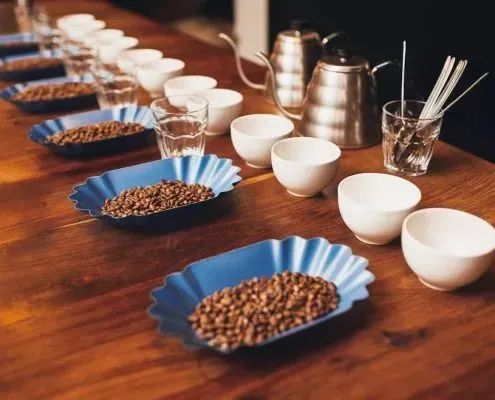
Heutzutage betonen Coffeeshops oft, dass sie es sind “boutique coffee”. And more than 90% of stores choose to use light to medium roast to interpret the flavor of raw coffee beans, why is this?
Fine coffee has many claims, but its core pursuit is only one thing – “terroir”. Because of the demand for such an original and detailed flavor presentation, “light roast”, a roast level has become popular.
Im hellen bis mittleren Röstgrad der Kaffee selbst “terroir” is most easily expressed, bright and lively acidic fruit tones are mostly the flavor that this roast degree wants to present, with hand-pouring, siphoning, Aloha pressure, and other “black” coffee extraction methods, is the most in line with The third wave of the fine coffee core concept of the practice.
Leicht gerösteter Kaffee enthält auch mehr Chlorogensäure. Viele Kaffeeforschungsberichte weisen darauf hin, dass dieser Inhaltsstoff das HDL-Cholesterin und den Leberschutz erhöht, Arteriosklerose verlangsamt und andere Auswirkungen hat. Mit dem Aufstieg der natürlichen Ernährung in den letzten Jahren ist der schwarze Boutique-Kaffee so gut wie er nur geht.
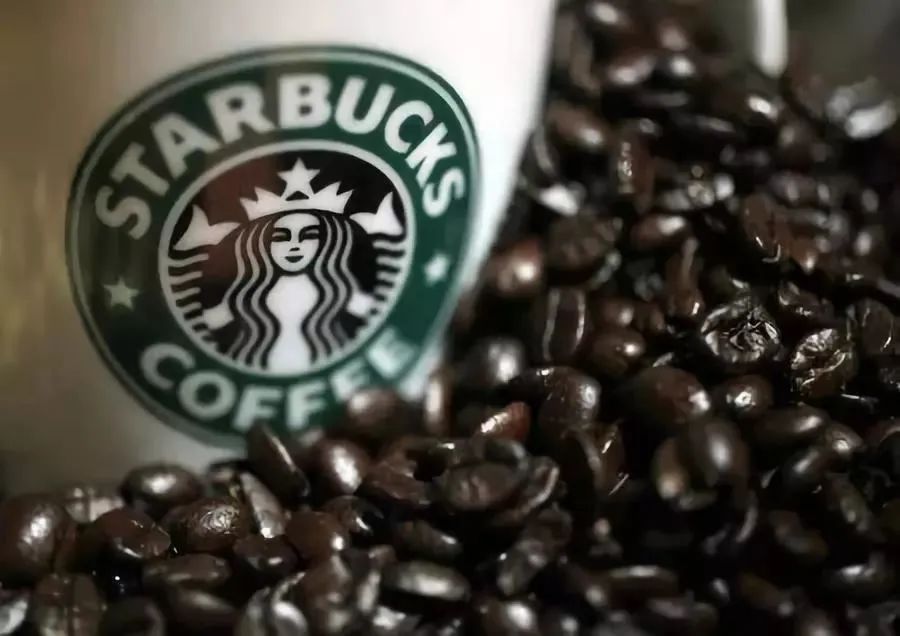
In Bezug auf die Extraktion können wir verwenden, da die Zellwände von leicht geröstetem Kaffee weniger beschädigt sind “violent” techniques in extraction, which is okay. That is fine grinding (fine sugar size), high water temperature (about 88 – 92 degrees), high water flow stirring (hand brewing pot height, shaking pot pressure, etc.), and high water to powder ratio (about 1:13.33 – 1:16.67).
Of course, this is a rather general statement. Because everyone’s preferred flavor is different, of course, the right approach is different for each person.
Die helle Röstung ist in der heimischen Kaffeewelt so beliebt, dass viele Enthusiasten beim Anblick von dunkel gerösteten Kaffees den Kopf schütteln und aufatmen werden: “herbal”. They even think that “only poorer beans use deep roasting techniques to disguise unpleasant flavors” and that “deep-roasted beans are unhealthy for the human body.” ……
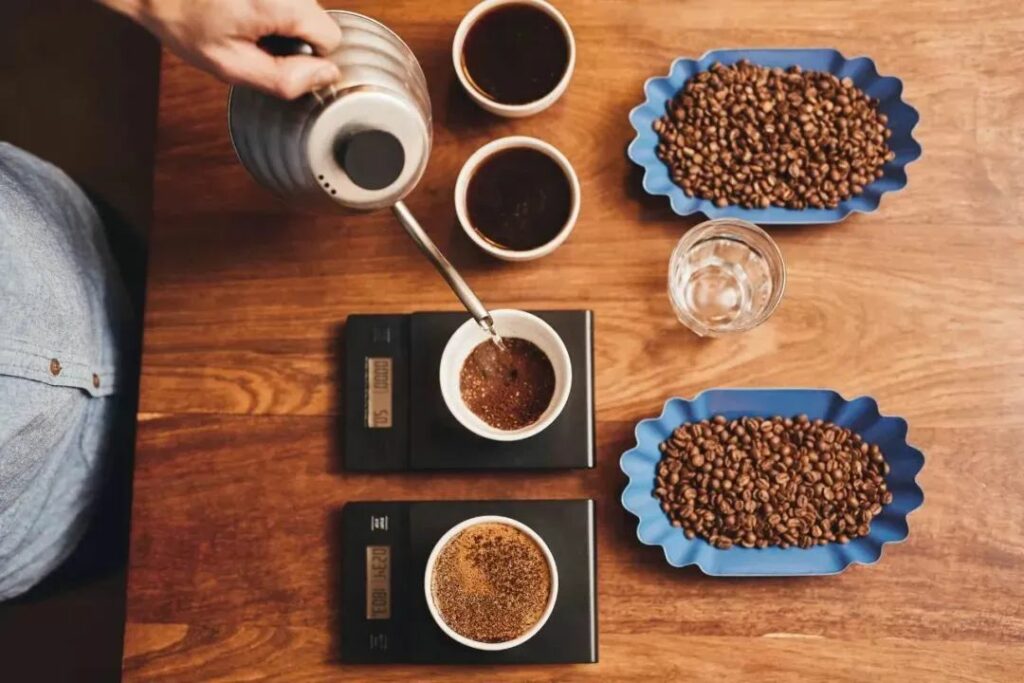
Tatsächlich ist eine solche Idee falsch, feiner Kaffee kann nicht tief geröstet werden. Warum zum Beispiel neigen Manteanin und Kenya AA dazu, in der Vergangenheit einen tieferen Braten zu nehmen?
Der Hauptgrund liegt in der Herkunft und Verarbeitungsmethode, wodurch diese beiden Bohnen eine starke Säure haben, während die tiefe Röstung eine große Rolle bei der Verlangsamung der Stimulation der Säure auf der menschlichen Zunge spielt und sie in einen süßen und weichen Wert verwandelt.
Wir denken bei dunkler Röstung meistens an verbrannt und rauchig, hauptsächlich weil die Art und Weise, wie wir mit dunkler Röstung umgehen, so ist “high heat and quick fry”, while Japanese roast insists on “low heat and slow roast”. So in the same deep roast, the Japanese method is relatively easy to leave more of the sweetness and fullness of the coffee.
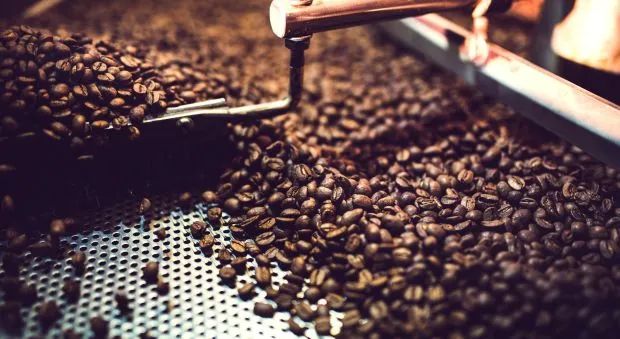
So, is it true that darker roasts don’t use good beans because they all taste the same when baked anyway?
Of course not! If you’ve ever had the pleasure of drinking a very dark roast of a boutique grade coffee bean in an old Japanese tea store, versus a very dark roast of an unusual batch of coffee beans, you’ll notice a significant difference in the sweetness, aroma, and layers between the two.
It is definitely not the case that any roaster or any raw bean will taste the same – it depends on the roaster’s skill and the quality of the raw beans.
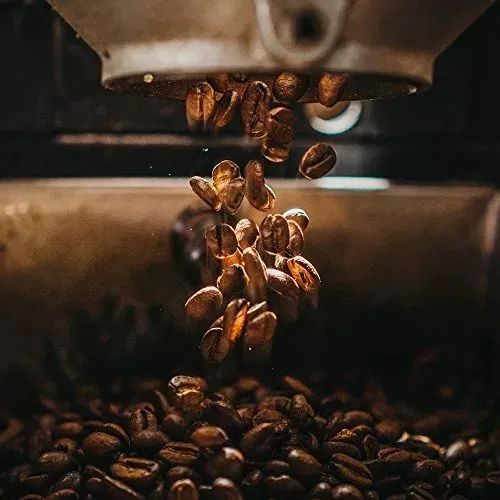
Auch dunkel geröstete Bohnen sind definitiv nicht ungesund. Solange die Bohnen sind “properly and skillfully” dark roasted, the effects of coking substances on the human body can be largely avoided. Dark roasted coffee beans also degrade fenugreek, producing more nicotinic acid (commonly known as vitamin B3), which is also a beneficial ingredient for the body.
Im Gegensatz zu helleren Röstungen liefern dunklere Röstungen das Aroma und die Süße aus den relativ großen Molekülen von “brown pigment” and therefore require a relatively longer extraction time. But also because of the ease of extraction, it is necessary to “minimize disturbance”, in other words, “treat the coffee powder as gently as possible”, and fill the water slowly in order to achieve these requirements at the same time.
Finally, don’t make the mistake of roasting a dark roast coffee just right!
Wenn Sie eine andere Meinung zu diesem Artikel haben, können Sie gerne einen Kommentar hinterlassen.
Über AFPAK
AFPAK forscht, entwickelt und fertigt Verpackungsmaschinen und -geräte zum Abfüllen von Kaffeekapseln. Seit über 12 Jahren ist AFPAK auf über drei Fabriken gewachsen, die sich unter anderem mit der Abfüllung von Kaffeekapseln, der Verpackung von Kaffeekapseln und leeren Kapseln befassen.
Medienkontakt:
Kontaktperson: Jeff Fang (Geschäftsführer)
Email:info@afpak.co
Tel: +86-1561-8866-167
Webseiten: https://afpakmachine.com/ https://www.nespressofilling.com/ https://www.kcupfilling.com/
